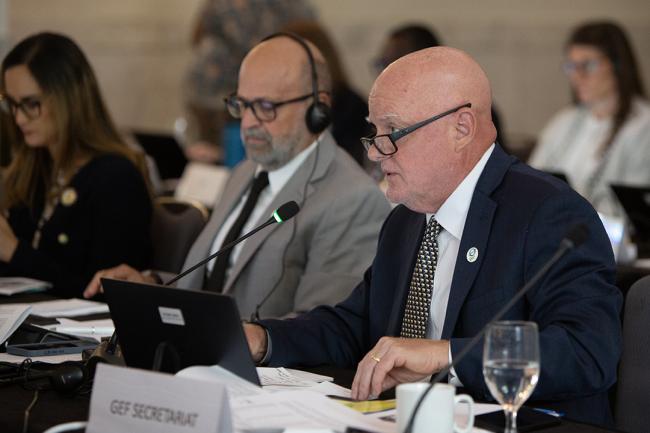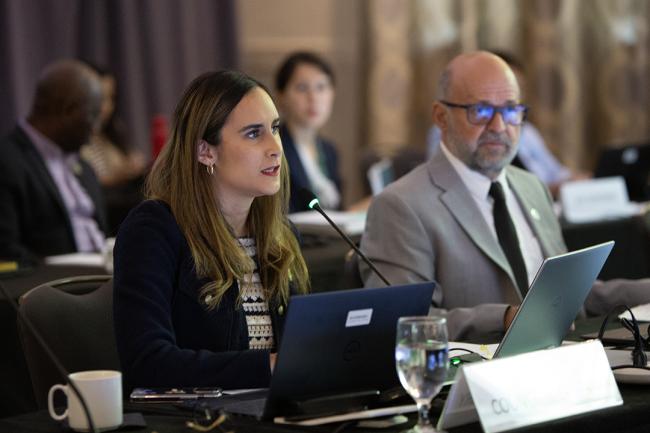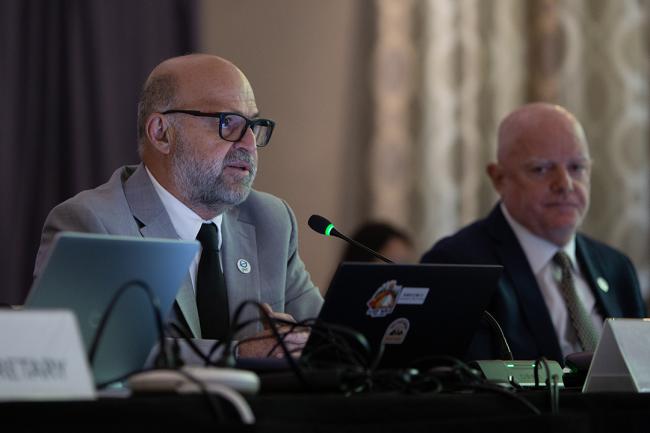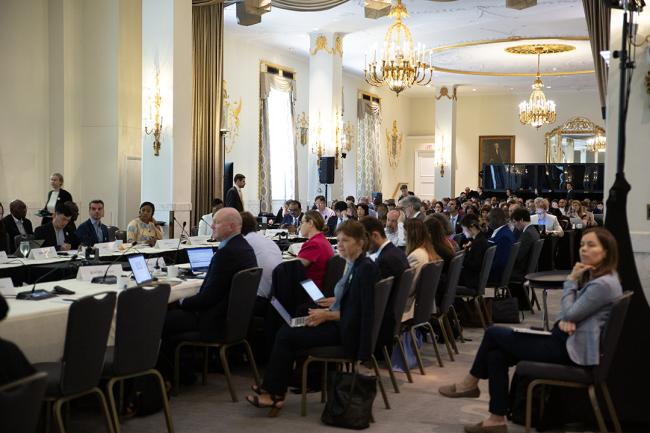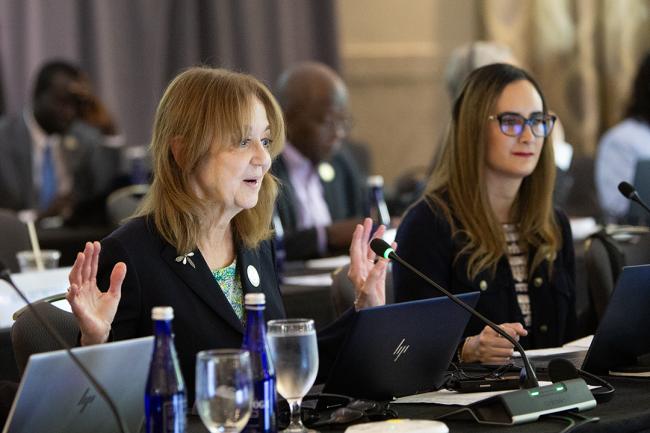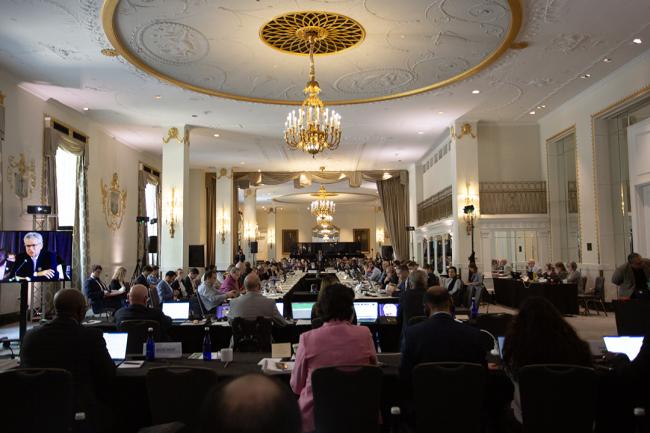The 67th meeting of the Global Environment Facility (GEF) Council gathered at the mid-point of its current replenishment (GEF-8) and nearly one year following the ratification and launch of the Global Biodiversity Framework Fund (GBFF) at the Seventh GEF Assembly.
Council Members opened their packed agenda with agreement on a work program for the GEF Trust Fund consisting of 25 projects and programs amounting to USD 495.6 million. With this agreement, the GEF has reached 59% of the entire GEF-8 envelope halfway into the replenishment period.
Addressing the Council, Claude Gascon, GEF Secretariat, stated that the biodiversity focal point received the highest portion of funding with USD 169.2 million, followed by chemicals and waste with USD 114.3 million, land degradation with USD 92.6 million, climate change with USD 64.7 million, international waters with USD 39.8 million, and the Non-Grant Instrument (NGI) program with USD 15 million. He highlighted the Great Green Wall Multi-Trust Fund Program between the LDCF and the GEF Trust Fund, the Coral Bond blended finance project which builds on the lessons from the Rhino Bond project and the Sustainable Cities Integrated Program (IP), the last of the IPs to be funded.
In his opening statement, Carlos Manuel Rodríguez, GEF CEO and Chairperson, identified key challenges and opportunities on the Council’s agenda. Highlighting the challenges facing the large oceanic small island developing states, CEO Rodríguez emphasized it is time to invest in a mature and reliable global carbon market, biodiversity credits, green bonds, third-generation debt swaps for nature, and the implementation of global systems that ensure fair and equitable sharing of benefits that arise from the use of genetic resources. He noted the GEF can be a “reliable cost-effective option for such initiatives particularly with the potential levies on sectors like shipping, aviation, and fossil fuel extraction.”
Rodríguez stressed that achieving goals under multiple multilateral environmental agreements (MEAs), including the “battle for 1.5 degrees, protecting 30% of the land and the ocean, the restoration of degraded lands, and the phase-out of POPs,” depends on decision makers’ efforts this decade. He said the next GEF replenishment (GEF-9) can be a “game-changer in multilateralism and resource mobilization.”
CEO Rodríguez noted the meeting would comprise three meetings with three large and diverse work programs. The GEF Trust Fund will consider an almost half billion-dollar work program with 25 projects and programs. The Least Developed Countries Fund work program is the largest ever, at USD 203 million. In addition, the first ever work program from the GBFF, which was established less than one year ago, will be considered.
In closing, he stressed that the GEF Partnership must rise to the challenges, by assessing “what we have, where we need to go, and how we will get there”. He called for a Partnership that is “bigger, bolder, and better. Bigger in our ambitions. Bolder in our actions. And better in our delivery, better in our impact.”
During an afternoon presentation, Rosina Bierbaum, Chairperson of the Scientific and Technical Advisory Panel (STAP), reviewed new scientific discoveries, recent STAP reports, STAP’s assessments of the work programs, and GEF-9 directions. With regard to future work, Bierbaum said initial consultations prior to GEF-9 have highlighted the need to mobilize three positive tipping points. To operationalize a whole of society approach, she highlighted the need to ensure synergies between global environmental benefits and social- and economic co-benefits. To achieve policy coherence, she highlighted the need to maintain sustained engagement in policy reform and implementation. To catalyze durable transformational change, she highlighted the need to consider how to best address resistance to transformation and to identify necessary societal learning and adaptive management.
All ENB photos are free to use with attribution. For this event, please use: Photo by IISD/ENB | Angeles Estrada Vigil
To receive free coverage of global environmental events delivered to your inbox, subscribe to the ENB Update newsletter.

